ECZEMA, SOMETIMES KNOWN as atopic dermatitis, is a chronic condition that can leave your skin red, raw, and itchy. Inflammation plays a primary role in this disease by breaking down the skin barrier—which is critical for preventing water loss and keeping toxins out of the body. While experts say there is no cure-all diet for eczema, certain foods may help curb inflammation, while others can leave your skin more irritated and primed for a flare. Here’s what to choose (and what to lose) seasonally at the grocery store.

Eczema and What You Eat
The relationship between what you eat and how you experience eczema is complicated, says Peter Lio, M.D., clinical assistant professor of dermatology and pediatrics at Northwestern University Feinberg School of Medicine in Chicago. This is partly because eczema patients are also more prone to food allergies (which are specific to each patient, he notes). However, “there’s no doubt that some foods are legitimately inflammatory, while others may help calm inflammation,” Dr. Lio says. So what, exactly, should you add to your shopping cart?
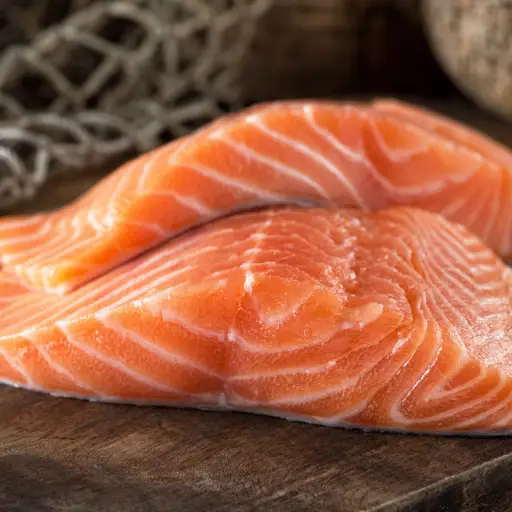
Spring Forward With Salmon
Fatty fish like salmon and sardines are known for their anti-inflammatory effects, Dr. Lio says. While the exact mechanisms are unknown, they’re a great source of omega-3 fatty acids, which have been associated with a reduction in inflammation. Research from the Journal of the American College of Cardiology found that people who ate at least 10 oz. of fish per week had significantly lower inflammatory marker levels compared to those who didn’t. For the strongest anti-inflammatory effects, check the label for wild-caught salmon—a healthier alternative to farm-raised fish, which has more (unhealthy) saturated fat, Dr. Lio says.
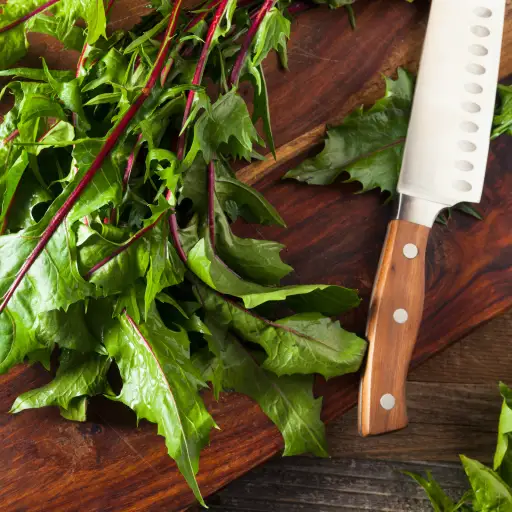
Build Skin Barrier With Summer Salads
Favorite summer salads often include spinach, dandelion greens, and berries. These fibrous foods contain prebiotics which help create a diverse system of microbes in the gut, acting like police officers and factory workers in the body, says Rajani Katta, M.D., a dermatologist and clinical assistant professor at Baylor College of Medicine in Houston. Like mini-cops, these microbes help fight off bad pathogens. And, “as factory workers, they take fiber and turn it into something called short-chain fatty acids, which help strengthen the lining of your gut and your skin barrier,” she adds.
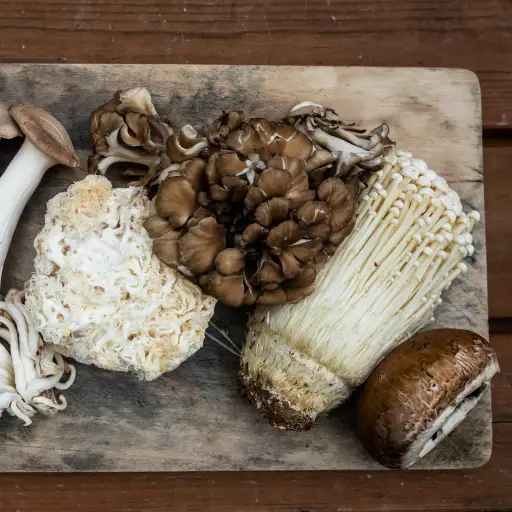
Now, Put the Harvest on Your Plate
Color your summer plate with seasonal superfoods like broccoli, mushrooms, and grapes. The fruits and veggies—which are also packed with nutrients—contain potent anti-inflammatory components. Broccoli is rich in sulforaphane, which has been found to reduce pro-inflammatory cytokines. Mushrooms are also filled with inflammation fighters such as polysaccharides and fatty acids. And grapes contain a powerful antioxidant called resveratrol which has been shown to help curb inflammation.
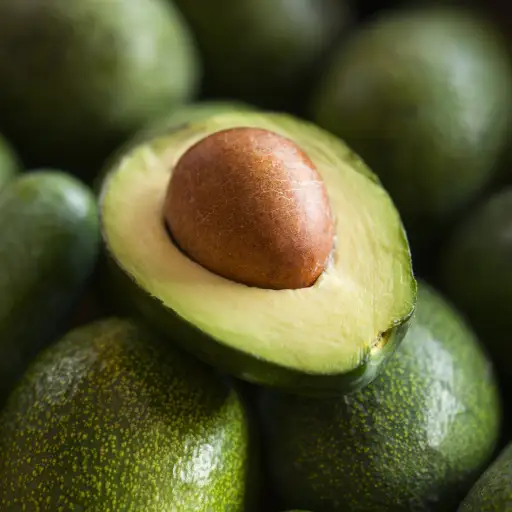
Enjoy Avocados in Autumn
Spice up your fall breakfast with tasty autumn avocado toast. This fruit—yes, it’s a fruit!—is rich in monounsaturated fats, which have been linked with lower levels of inflammatory markers. One study published in Food & Function found that participants who ate a hamburger with a slice of avocado had reduced inflammatory responses compared to those who ate a burger without avocado. For an added health bonus, top off your avocado toast with olive oil, a healthier oil that’s high in monounsaturated fats.
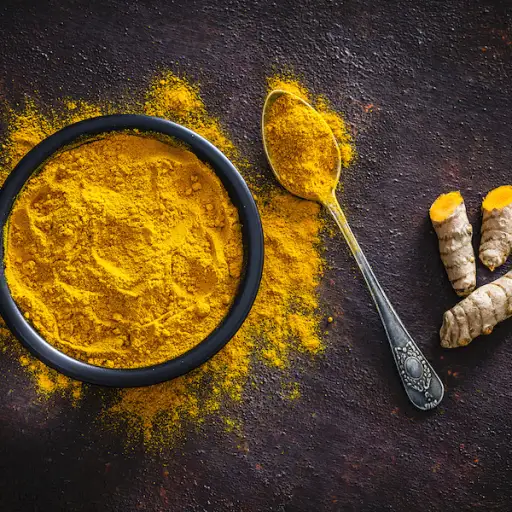
Fall Into a Tasty Tumeric Habit
Add some spice to your fall soups! Turmeric, a yellow plant in the ginger family, is known to fight inflammation, says Dr. Katta. The spice contains curcumin, which has antioxidant and anti-inflammatory properties. While research on the effects of turmeric in patients with eczema is limited, several studies have shown the spice can play a role in helping to mitigate inflammation in other chronic illnesses. Add a pinch of black pepper, as well. According to research in Journal of Foods, piperine, a component of pepper, helps the body better absorb the turmeric.
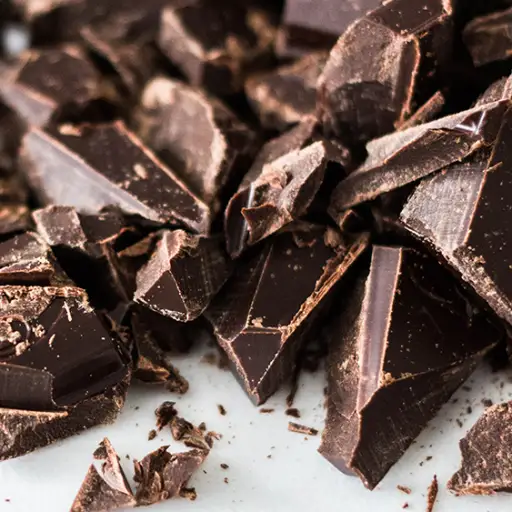
Savor Dark Chocolate on Cold Days
Everyone’s favorite sweet may actually help reduce inflammation. Dark chocolate comes from a plant called cacao which is filled with antioxidants that may help fight inflammation. In one study published in the International Journal of Preventative Medicine, participants who ate 30 grams of 84% dark chocolate daily and were given guidelines for therapeutic lifestyle changes for eight weeks had lower levels of inflammatory markers compared to those who did not eat the chocolate. As autumnal breezes turn into snowy days, try melting some dark chocolate to use in your hot cocoa for a winter treat.
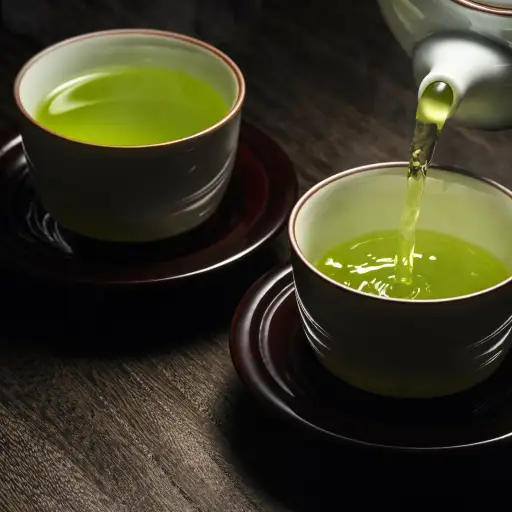
Warm-Up Winter With Green and Oolong Teas
Curl up on the couch with a warm cup of tea—but not just any kind. A study published in the Archives of Dermatology found that when 121 patients drank oolong tea three times a day, after one month, 63% saw moderate improvements in skin lesions. While researchers aren’t sure of the exact mechanisms, it’s possible antioxidant polyphenols in the tea serve as anti-allergens that help to calm the immune system. The drink is also safe and inexpensive, Dr. Lio says. Similarly, green tea has been shown to have anti-inflammatory properties from antioxidants, too.

Perennial Problem: Refined Sugar
No matter what time of year, do your best to skip sugary comfort foods. Processed sweets and beverages like cookies and soda can cause insulin levels to spike, leading to inflammation. Research from the Journal of the American College of Cardiology suggests diets high in refined sugar may lead to excessive inflammation. For a healthier dessert alternative, skip the donuts and slice up some bananas, a fruit rich in fiber and prebiotics, a type of fiber that feeds the “good” bacteria in your gut.

Perennial Problem: Salty Snacks
Favorite items from the snack aisle—pretzels, potato chips, crackers—can contain high levels of sodium. These salty processed snacks may cause inflammation by increasing blood pressure through water retention. One study published in Pediatrics Journal found that high sodium intake in teenagers was associated with inflammation markers, even after controlling for body fat percentage and sugar intake. Instead, search for healthy, low-sodium snacks like air-popped popcorn, fresh fruit, and kale chips.

Perennial Problem: Fast Food
Take fewer trips to your favorite fast food stops. Processed meats such as bacon, burgers, and hot dogs are linked to excess inflammation. These meats, which are high in saturated fats, also increase your risk for other chronic illnesses like heart disease and cancer, according to Harvard Health. In a prospective study with more than 3,000 women from the American Journal of Clinical Nutrition, researchers found that greater consumption of red meat was associated with higher levels of inflammatory markers. For healthier winter comfort foods, look to leaner meats like turkey and chicken.

Eat Well Every Day to Feel Good
Season in and season out, experts say there’s no magic diet for people trying to manage eczema symptoms, and there’s still much more to learn about how the gut interacts with the skin barrier. People with eczema should continue to consult with their doctors to learn more about their own specific food allergies, says Dr. Lio. But he adds that in addition to medical treatment, prioritizing anti-inflammatory foods and cutting back on processed items as much as possible may help calm the skin and nourish your long-term health—all year-round.

Leave a Reply